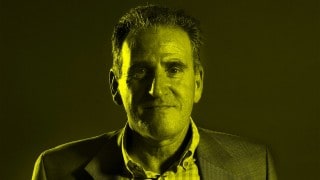The Inquisition was a Roman Catholic tribunal for discovery and punishment of heresy, which was marked by the severity of questioning and punishment and lack of rights afforded to the accused.
While many people associate the Inquisition with Spain and Portugal, it was actually instituted by Pope Innocent III (1198-1216) in Rome. A later pope, Pope Gregory IX established the Inquisition, in 1233, to combat the heresy of the Abilgenses, a religious sect in France. By 1255, the Inquisition was in full gear throughout Central and Western Europe; although it was never instituted in England or Scandinavia.
Initially a tribunal would open at a location and an edict of grace would be published calling upon those who are conscious of heresy to confess; after a period of grace, the tribunal officers could make accusations. Those accused of heresy were sentenced at an auto de fe, Act of Faith. Clergyman would sit at the proceedings and would deliver the punishments. Punishments included confinement to dungeons, physical abuse and torture. Those who reconciled with the church were still punished and many had their property confiscated, as well as were banished from public life. Those who never confessed were burned at the stake without strangulation; those who did confess were strangled first. During the 16th and 17th centuries, attendance at auto de fe reached as high as the attendance at bullfights.
In the beginning, the Inquisition dealt only with Christian heretics and did not interfere with the affairs of Jews. However, disputes about Maimonides’ books (which addressed the synthesis of Judaism and other cultures) provided a pretext for harassing Jews and, in 1242, the Inquisition condemned the Talmud and burned thousands of volumes. In 1288, the first mass burning of Jews on the stake took place in France.
In 1481 the Inquisition started in Spain and ultimately surpassed the medieval Inquisition, in both scope and intensity. Conversos (Secret Jews) and New Christians were targeted because of their close relations to the Jewish community, many of whom were Jews in all but their name. Fear of Jewish influence led Queen Isabella and King Ferdinand to write a petition to the Pope asking permission to start an Inquisition in Spain. In 1483 Tomas de Torquemada became the inquisitor-general for most of Spain, he set tribunals in many cities. Also heading the Inquisition in Spain were two Dominican monks, Miguel de Morillo and Juan de San Martin.
First, they arrested Conversos and notable figures in Seville; in Seville more than 700 Conversos were burned at the stake and 5,000 repented. Tribunals were also opened in Aragon, Catalonia and Valencia. An Inquisition Tribunal was set up in Ciudad Real, where 100 Conversos were condemned, and it was moved to Toledo in 1485. Between 1486-1492, 25 auto de fes were held in Toledo, 467 people were burned at the stake and others were imprisoned. The Inquisition finally made its way to Barcelona, where it was resisted at first because of the important place of Spanish Conversos in the economy and society.
More than 13,000 Conversos were put on trial during the first 12 years of the Spanish Inquisition. Hoping to eliminate ties between the Jewish community and Conversos, the Jews of Spain were expelled in 1492..
The next phase of the Inquisition began around 1531, when Pope Leo X extended the Inquisition to Portugal. Thousands of Jews came to Portugal after the 1492 expulsion. A Spanish style Inquisition was constituted and tribunals were set up in Lisbon and other cities. Among the Jews who died at the hands of the Inquisition were well-known figures of the period such as Isaac de Castro Tartas, Antonio Serrao de Castro and Antonio Jose da Silva. The Inquisition never stopped in Spain and continued until the late 18th century.
By the second half of the 18th century, the Inquisition abated, due to the spread of enlightened ideas and lack of resources. The last auto de fe in Portugal took place on October 27, 1765. Not until 1808, during the brief reign of Joseph Bonaparte, was the Inquisition abolished in Spain. An estimated 31,912 heretics were burned at the stake, 17,659 were burned in effigy and 291,450 made reconciliations in the Spanish Inquisition. In Portugal, about 40,000 cases were tried, although only 1,800 were burned, the rest made penance. http://www.jewishvirtuallibrary.org/jsource/History/Inquisition.html









